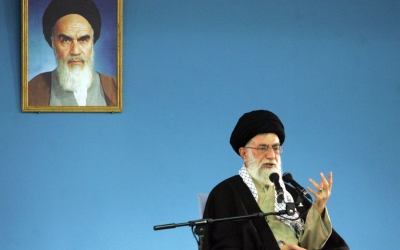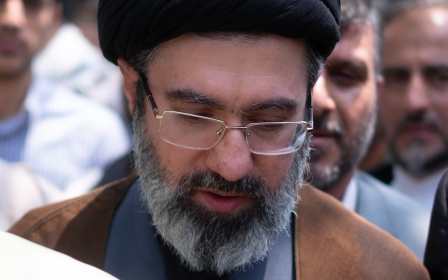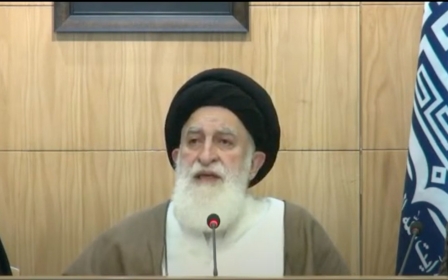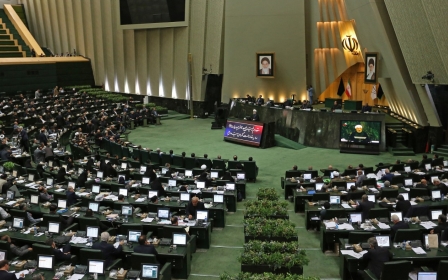Iranians decry 'double standard' after Khamenei's favourite cleric 'insults' Prophet Muhammad
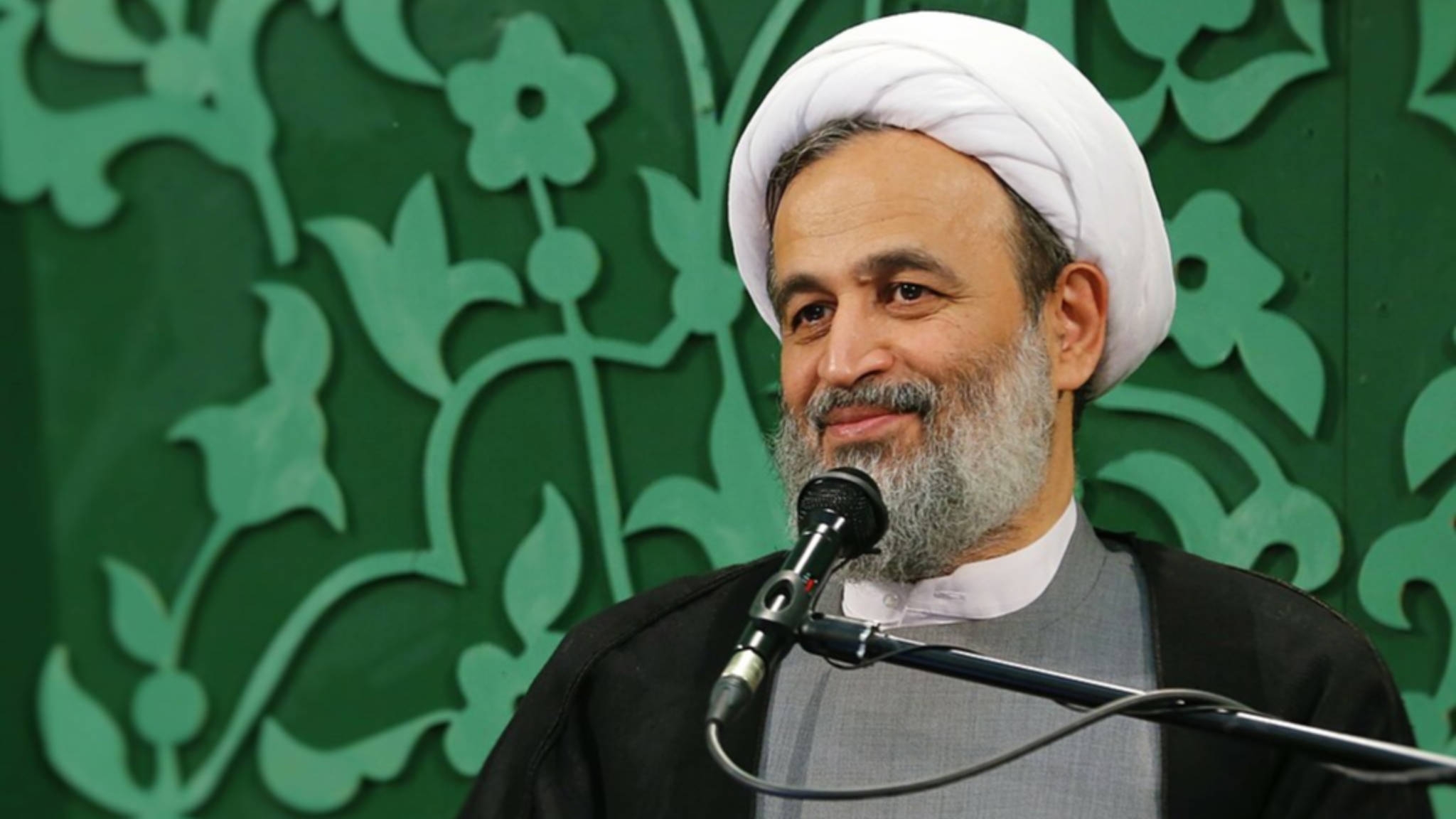
In Iran, making derogatory remarks about Prophet Muhammad would usually earn people up to five years in prison. However, when a favourite cleric of Supreme Leader Ali Khamenei was accused of committing the same offence early this month, it was met with a notable silence by the establishment.
The lack of official rebuke did not go unnoticed by outraged Iranians who were quick to point to the double standard that has allowed influential ultra-conservative cleric Alireza Panahian to go unpunished.
During a political commentary on state TV, Panahian, discussing "spiritual jealousy", said the Prophet was "unpleasant" and "had not kept a friend neither for himself nor for Imam Ali".
Panahian's comments quickly caused widespread outrage, with many Iranians, including even conservatives, describing them as insulting.
Hossein Ansarian, a respected and well-known preacher, denounced Panahian, saying: "Was the Prophet unpleasant? Is there anything more disgraceful than saying this to the Prophet?"
Meanwhile, during a sermon broadcast live on state TV, ultra-conservative eulogist Mansour Arzi said: "We must speak frankly. The one who says that the Prophet was unpleasant, should know that they have become miserable, they will not end well."
Notably, the broadcast was cut off immediately after Arzi's harsh criticism of Panahian.
Following the uproar, Panahian defended his remarks by claiming that he was quoting what "jealous" people had said about the Prophet. But when Ansarian criticised him, Panahian issued an apology.
The apology, however, wasn’t enough to quell criticism of the double standard that would have swiftly gotten reformists in prison had they insulted Muhammad. Soon after his comments, Panahian was seen at a high-profile economic meeting with President Ebrahim Raisi.
"If we had used this word, they would have protested. But if someone from among themselves says it, they just claim that he misspoke," said Hassan Aghamiri, an independent cleric.
Mohsen Borhani, a legal expert, said that according to the current practice in the judiciary, Panahian's statements are insulting and punishable by one to five years in prison.
Who is Panahian?
Panahian, 59, is widely reguarded as one of Khamenei's favourite clerics. In 2009, he co-founded the Ammar Base think tank, a political-religious organisation close to the Iranian Revolutionary Guard Corps, following the disputed presidential elections that saw principlist Mahmoud Ahmedinejad re-elected.
Reformists believed the ballots were rigged and millions of Iranians took to the street to protest the results. The protests were violently crushed, and dozens of protesters were killed.
Amid the upheaval, the Ammar think tank sought to politically and culturally influence public opinion in favour of conservatives and Khamenei.
"Perhaps the Ammar Base could be considered the most pivotal political turning point in Panahian's life and has led him to become closely associated with the core of power in the Islamic Republic," a veteran political journalist, who did not want to be named, told Middle East Eye.
Panahian is also known for his controversial statements. In 2013, he labelled the 2009 protesters as supporters of the Islamic State militant group, and said the "seditionists" should be "punished by execution".
More recently, the cleric referred to the 2022 anti-establishment demonstrations, following the death of Mahsa Amini while in morality police custody, as "the uprising of wild men" whom he accused of "vulgarities, cursing, and brutal killings".
Security forces brutally cracked down on protesters, killing hundreds of people calling for reforms.
Panahian's project
Iranian observers say "the project" led by Panahian in recent years offers a perspective on political Shiism specifically tailored for the supporters of the Islamic Republic.
It primarily focuses on Iranian leadership, addressing the anticipated needs and challenges that leaders may confront. Consequently, observers believe this makes it imperative to closely monitor Panahian’s statements.
"Among contemporary Shia discourses, what Panahian promotes in his project stands out as the most anti-people and anti-society discourse and interpretation. This discourse exhibits an anti-majority and oligarchic nature," Mohsen Hesam Mazaheri, a sociologist and religious researcher, said on Telegram.
'Panahian has had numerous state-run platforms at his disposal over the past decade to disseminate and expand his own ideas and those of his associates'
- political analyst
"In this discourse, the masses are consistently criticised for their ignorance, materialism, and desire for comfort.
"The envisioned society in this interpretation is one that is submissive."
A political analyst, based in Qom, said that even though Panahian has never held government positions nor does he hold higher religious education like other clerics, the establishment has long allowed him the stage he needs to spread his ultra-conservative rhetoric.
"He has had numerous state-run platforms at his disposal over the past decade to disseminate and expand his own ideas and those of his associates. He has somewhat introduced his radical opinions instead of the views of Shia clergy," the analyst told MEE on condition of anonymity.
"Panahian is offering a radical and harsh version of Islam for the new generation of conservatives to be raised upon, instead of an Islam of kindness."
Speaking on condition of anonymity, a cleric, who used to be part of the establishment, said Panahian seeks to theorise and define religion and the Shia sect according to the current political climate and trends of the Islamic Republic, which he believes is a problem.
"Religion, the teachings and behaviour of the Prophet and the imams are thus all interpreted according to the behaviour and policies of the Islamic Republic and the challenges it’s facing, even if it contradicts the explicits texts of religious sources," he said.
Middle East Eye propose une couverture et une analyse indépendantes et incomparables du Moyen-Orient, de l’Afrique du Nord et d’autres régions du monde. Pour en savoir plus sur la reprise de ce contenu et les frais qui s’appliquent, veuillez remplir ce formulaire [en anglais]. Pour en savoir plus sur MEE, cliquez ici [en anglais].


